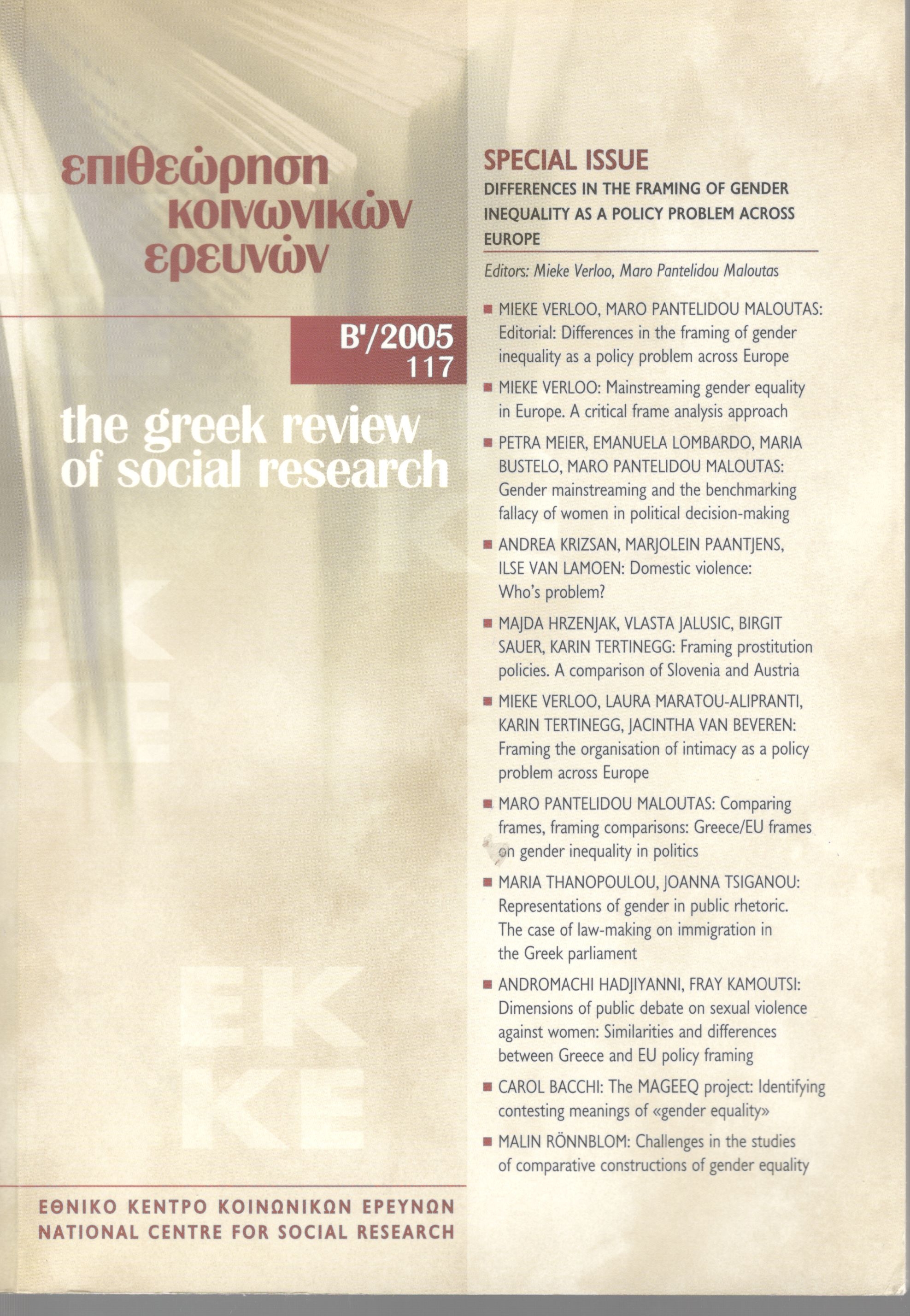Mainstreaming gender equality in Europe. A critical frame analysis approach
Abstract
This article analyzes implementation problems in gender mainstreaming as accentuated by a multi-level setting and assumes that one of the major factors affecting implementation problems is a discursive one. Against this backdrop a methodological approach is presented to study such divergences in policy frames on gender equality. Based upon recent literature, the article first outlines the necessity for a comparative methodology to analyze (gender equality) policy frames, and identifies some major problems in the construction of such methodology. The article then presents and explains Critical Frame Analysis as a promising methodological approach for studying and comparing the framing of gender inequality as a policy problem across Europe in a systematic way. Critical Frame Analysis builds upon social movement theory, gender theory and policy theory. This article can be considered to be an introduction to the special issue, as all articles refer to Critical Frame Analysis methodology as it has been used in the MAGEEQ research project.
Article Details
- How to Cite
-
Verloo, M. (2016). Mainstreaming gender equality in Europe. A critical frame analysis approach. The Greek Review of Social Research, 117, 11–34. https://doi.org/10.12681/grsr.9555
- Section
- Articles

This work is licensed under a Creative Commons Attribution-NonCommercial 4.0 International License.
Authors who publish with this journal agree to the following terms:
- Authors retain copyright and grant the journal right of first publication with the work simultaneously licensed under a Creative Commons Attribution Non-Commercial License that allows others to share the work with an acknowledgement of the work's authorship and initial publication in this journal.
- Authors are able to enter into separate, additional contractual arrangements for the non-exclusive distribution of the journal's published version of the work (e.g. post it to an institutional repository or publish it in a book), with an acknowledgement of its initial publication in this journal.
- Authors are permitted and encouraged to post their work online (preferably in institutional repositories or on their website) prior to and during the submission process, as it can lead to productive exchanges, as well as earlier and greater citation of published work (See The Effect of Open Access).



